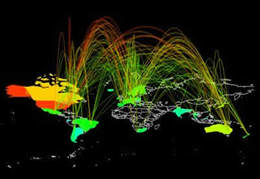- Milano
- PhD Program in Psychology
- PhD Program
PhD Program

What is the PhD Program in Psychology?
The PhD Program in Psychology aims to train high-level professionals capable of carrying out qualified research – both basic and applied – in private entities, public institutions, and universities.
In particular, the School aims to train individuals who can exercise their skills in an interdisciplinary manner and who wish to apply the theoretical and methodological knowledge acquired in various areas of interest of the Faculty of Psychology, such as:
- Clinical psychology and health promotion: individuals, family and community relationships
- Psychology for organizations: human resources, marketing, and communication
- Developmental psychology and protection processes
- Well-being psychology: empowerment, rehabilitation, and positive technology
- Psychology of clinical interventions: groups, organizations, communities
- Consumer behaviour: psychology applied to food, health and environment
The main requirement to apply for the PhD Program in Psychology is to hold a Master’s Degree. PhD candidates will attend the courses, carry out their research, and complete their PhD thesis in three years. By the end of the second year, PhD students will be required to defend their research project in front of the PhD Program community. By the end of their third year, candidates must submit a draft of their final thesis.
Throughout the entire three-year doctoral program, doctoral students will receive guidance and support from a tutor. The tutor is a professional researcher, a full or associate professor, whose role is to lead and support the group of students in each cycle throughout the entire training process, including important milestones such as enrolment, defence, and thesis writing. The tutors for each academic year will be communicated on the opening day of the doctoral program's academic year.
The admission to the final examination will follow a procedure designed to ensure the high quality of the thesis and research. The draft thesis will be evaluated by the candidate's advisor and two external referees with expertise in the thesis topic. The thesis must meet the standard of a publishable paper or book. Based on the evaluations of the advisor and external referees, the Academic Board will decide whether to recommend that the candidate submits the thesis to the Examination Commission for the final oral dissertation.
Why apply for the PhD Program in Psychology at Università Cattolica?
The Università Cattolica del Sacro Cuore of Milan boasts a long psychological tradition. Father Agostino Gemelli, the founder, was a doctor and psychologist who gave so much to the study of psychology in Italy as to be considered a leader in the field by people of all opinions and currents. He was an advocate of psychology as an independent science, in terms of both method and subject. At the same time, he was a great supporter of the idea that this discipline should be linked to others, particularly to philosophy, biology and history. The Psychology and Biology Laboratory that he established in the Università Cattolica in 1924 was his main creation and featured exceptional research instruments for the time. These important foundations laid by Father Agostino Gemelli have made Università Cattolica an internationally recognized hub for the study and research in psychology.
What are the opportunities for internationalisation?
The Università Cattolica del Sacro Cuore promotes the internationalisation of the PhD program in several ways. First of all, both national and international students are encouraged to apply for the PhD program in Psychology. In line with that, all the activities of the PhD are in English. This includes lectures, seminars, the writing of PhD thesis and the final defense examination. The Academic Board is composed of both national and international scholars, which will provide a large number of training activities for PhD candidates (e.g., research methodology, qualitative and quantitative research approaches, writing, etc.). In addition, during the Doctoral Programme, students are encouraged to conduct training and studies at universities, institutes, and research centres abroad, as a way to improve the quality of their research and enhance their international competitiveness. Among the several tools used to boost the international dimension of the Doctoral Programmes we can list promotion of Doctoral students' mobility, achievement of the Doctor Europaeus qualification, promotion of joint dissertation supervision agreements, initiatives of collaboration with foreign universities (Double Doctoral Degrees).
- Doctoral students’ mobility. Students may enhance their education and research activity with study and research stays abroad. Students with scholarships are granted an additional 50% of the scholarship for their entire stay abroad (regardless of its duration), to a maximum of 18 months.
- Doctor Europaeus. The Doctor Europaeus qualification is obtainable in all European countries in addition to one's national degree, and it may be obtained in compliance with some conditions (for additional information, see here).
- Cotutelle agreement. The cotutelle allows PhD students to write the thesis under the joint supervision of a lecturer from the Università Cattolica del Sacro Cuore and a lecturer from a foreign university, carrying out research periods at the partner university. In order to activate a cotutelle, it is necessary to: be enrolled in a PhD program at one of the two universities involved; submit an application no later than the first semester of the second year of the PhD programme; plan a research period at the partner university; obtain the approval of the Doctoral Teaching Board (for additional information, see here).
- Double Doctoral Degrees. The Double Doctoral Degree is a general agreement between two existing Doctoral Programs/Schools, one at Università Cattolica del Sacro Cuore and one at a foreign university, upon the proposal of one or more professors belonging to the Teachers Board. A Double or multiple degree application should be s signed at least six months before the start of a doctoral cycle and its existence must be indicated - as far as Università Cattolica is concerned - in the Call for PhD competition.The main features of the Double Degree can be found here.
